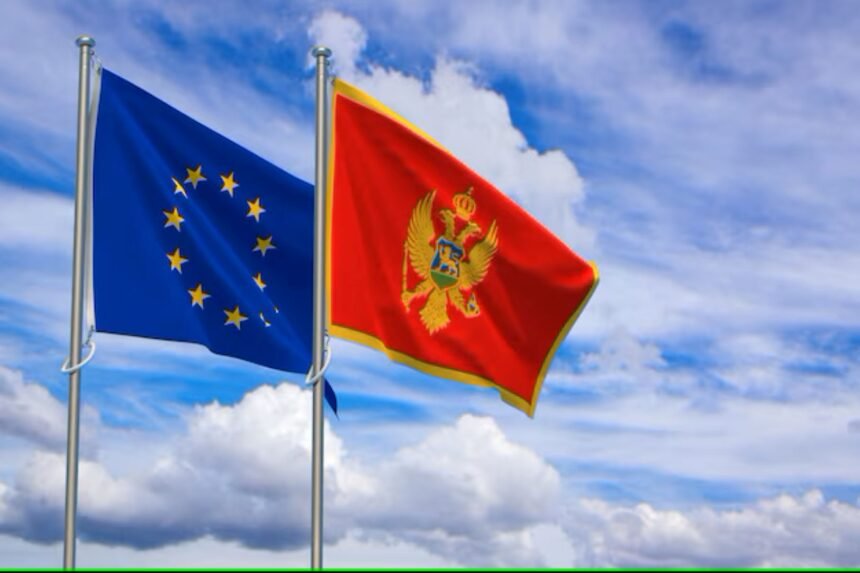Marjan Šarec, the European Parliament’s rapporteur for Montenegro, presented the Draft Report on the country’s progress towards EU membership on Friday, urging Montenegrin political leaders to stay focused on European integration.
Šarec addressed the European Parliament, highlighting that “political stability and constructive inter-party cooperation at this stage are the only sustainable path towards Montenegro’s full EU membership,” as stated by the European Parliament.
The draft report acknowledged Montenegro’s progress in implementing reforms and measures, which are the result of collective efforts by political actors, civil society, and the broader public. Šarec encouraged Montenegrin authorities to quickly amend the electoral laws, particularly to ensure that local elections are held on the same day nationwide, addressing other outstanding issues related to local elections.
The report also recognized progress in the judiciary but emphasized the need for Montenegro to further align its legal framework, including the Constitution, with EU laws and standards regarding judicial independence, impartiality, integrity, and professionalism.
Based on the European Commission’s reports from 2023 and 2024, the document presented by Šarec outlines Montenegro’s key achievements and challenges that are crucial for further alignment with the EU.
Šarec expects the report to be voted on in May 2025 by the Foreign Affairs Committee (AFET) and the final vote during the plenary session in Strasbourg in June 2025.
In a separate statement, Šarec remarked that Montenegro shows political will to continue its European path, with public support for EU membership remaining high. However, he stressed the importance of avoiding daily political turmoil, which he believes arises from the large number of political parties vying for power, hindering the passage of key laws needed to conclude the negotiation process.
Šarec highlighted that laws must be more efficient and not merely “cosmetic” and emphasized that Montenegro has a good chance of becoming an EU member within the current mandate of EU institutions.
The European Parliament also commended Montenegro for its full alignment with the EU’s common foreign and security policy, including restrictive measures related to Russia’s war against Ukraine. It encouraged Montenegro to strengthen the implementation of these measures and avoid circumvention.
The report praises Montenegro’s humanitarian and material support for Ukraine, noting the country’s role as a host for many Ukrainian refugees. However, it expresses serious concern about malicious foreign interference, destabilization efforts, hybrid threats, and disinformation campaigns from third-party actors.
The European Parliament urged Montenegro to adopt countermeasures in cooperation with the EU and NATO and emphasized the need for stronger strategic communication with Montenegrin citizens about the benefits of EU membership.
In terms of democracy and the rule of law, the report recognizes the critical role of the Montenegrin Parliament in the accession process but also expresses concern over political boycotts, blockades, and the resurgence of ethnic polarization. It calls for a constructive dialogue and consensus-building across the political spectrum, emphasizing the quality of legislation and regular engagement with civil society in decision-making processes.
The draft also expresses sorrow over the tragic mass shooting in Cetinje and urges Montenegro to align its firearms legislation with EU and international standards.
Lastly, the report calls on Montenegro to fully align its visa policy with the EU, especially regarding countries posing security risks.
In its chapter on fundamental freedoms and human rights, the European Parliament regretted the ongoing discrimination faced by vulnerable groups in society and urged Montenegro to adopt a new anti-discrimination law to better safeguard the rights of these groups. It also emphasized that respect for the rights of national minorities is integral to the EU acquis.
The European Parliament welcomed Montenegro’s new media laws and its media policy strategy, stressing zero tolerance for pressure or harassment of journalists, including public figures. It called for effective monitoring of previous cases of attacks on journalists, while expressing concern over the high level of media polarization and their vulnerability to political and foreign influence. The Parliament urged Montenegrin authorities to ensure editorial, institutional, and financial independence of public service media.







